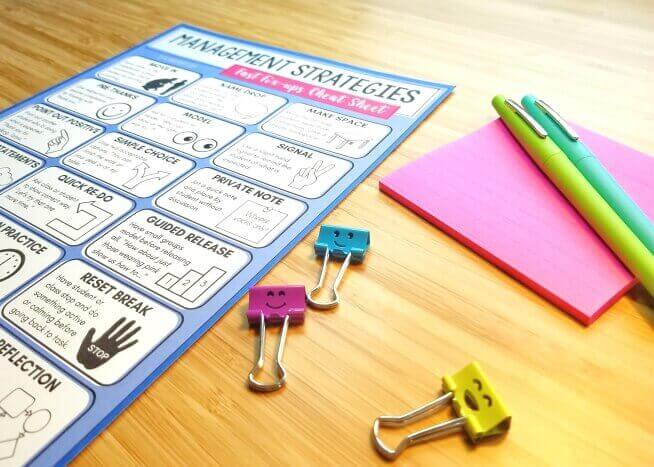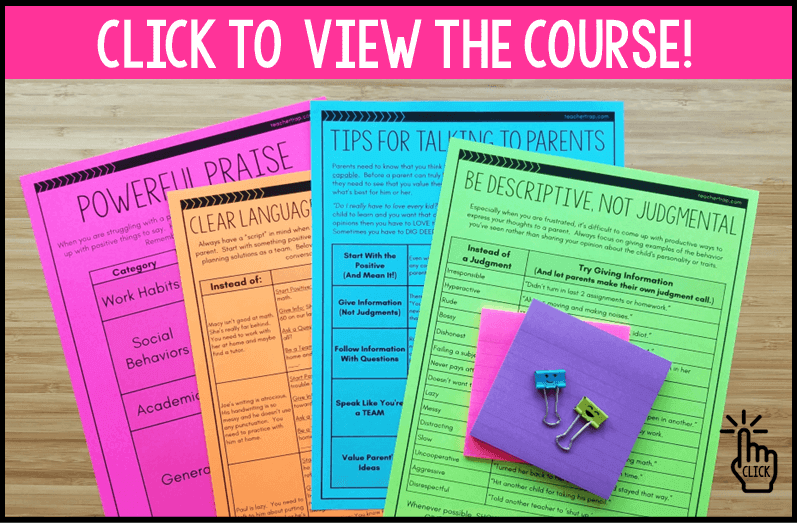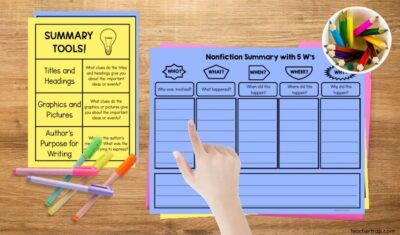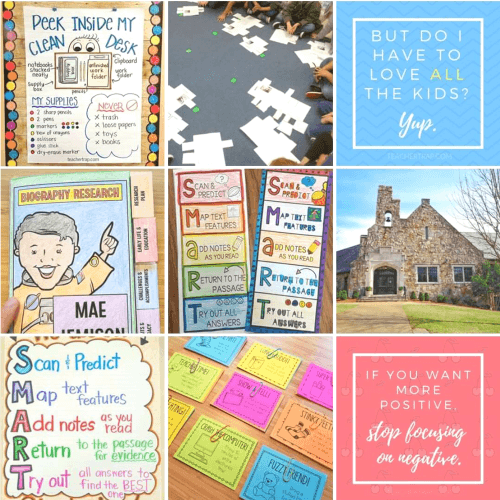Teachers are stuck with the challenging task of telling parents things they don’t want to hear. Telling a parent that their child is struggling in school, making poor choices, or is otherwise not PERFECT, can be tough!
But there’s good news! With some simple shifts in our language we can help parents understand our message and get on board to support their child. I’ve got 3 handy tips straight from my online course Positive Parent-Teacher Partnerships!
(NOTE: The online course has everything from the Stress-Free Parent Communication Pack, but also includes video trainings for extra support!)

#1 Make a Positive Connection
Before a parent can HEAR a tough message, they need to know that you love and care for their child. Every phone call, meeting, or conference must begin with the teacher sharing something positive about the student.
It can be something simple, but it has to be TRUE!
- You’ll never believe what Madison said during reading group yesterday. It was so deep and thoughtful that she sounded like an adult!
- I just have to tell you how much I appreciate Benny’s help with welcoming our new student. He has such a kind heart!
- The music teacher kept telling me about Jakell’s singing talents. I finally went down to listen and he is amazing!
When parents see that you care for their child and view them as a unique individual, they are much more able to receive tough news. When you share something negative, they’ll know it comes from a place of concern and care for the child.
#2 Describe Without Judgment
When we are frustrated with a child’s behavior or lack of progress, it’s easy to use emotionally-charged or judgmental words. Telling a parent that their child is lazy, disrespectful, hyper, aggressive, or mean can set off alarm-bells and make it hard for them to really hear and process our message.
Instead, describe the situation and offer the parents clear information about what you’ve been seeing at school.
Rather than: “Your child is rude.”
Describe What You’re Seeing: “I’m concerned about her relationships with other students. Last week, she told another child ‘You’re not cool enough to play with us.’ And this week, she teased a child for getting a bad grade.”
Rather than: “Your child is failing math.”
Give Information: “Here are Leo’s last few assignments. I’ve been working with him in a small group, but here is his last test. He hasn’t mastered these concepts YET.”
When we describe and offer information, parents are free to make their own judgments, and we avoid upsetting or offending them. In my blog post, Sharing Student Progress With Parents, I give some specific strategies for helping parents understand how their child is performing academically.
#3 Speak Like You're a Team
Another shift that makes a big difference is using language that shows you are all on the same TEAM. Parents may feel overwhelmed, anxious, embarrassed, or confused when they hear about their child’s challenges. Make sure they understand that you are in this together to support the child.
Rather than: “YOU need to be reading with your child every night. YOU should have been practicing sight words at home.”
Try: “Let’s make a plan for how WE can help Luke. I can work with him in a small group every day at school. Are you able to read with him for twenty minutes every evening?”
For more ways to talk to parents, check out Real Ways to Get Parent Support at Home.
Ready for Awesome Parent Relationships?
I took all the strategies from my best-selling Stress-Free Parent Communication Pack, and turned them into an online training complete with editable tools, bonus cheat sheets, and ready-to-go guides and scripts for parent-teacher conferences and phone calls home.
Once you’ve learned how to make parents your greatest allies, teaching becomes so much easier!
Learn more now: Positive Parent-Teacher Partnerships Course
If you don’t have time for a course, no worries! You can grab all the goodies (aside from the videos) in my Stress-Free Parent Communication Pack on TPT!















